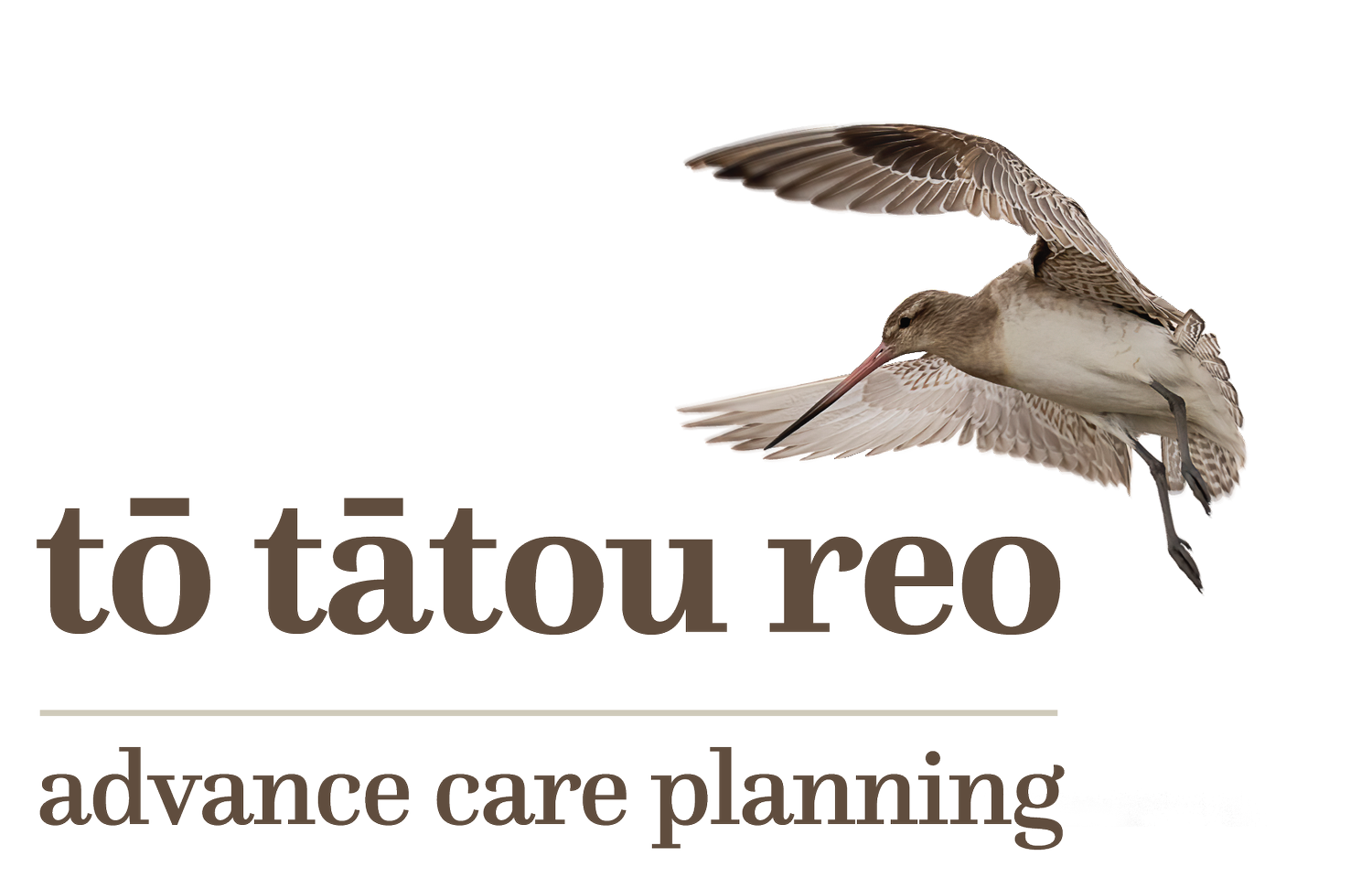Myth busting advance care planning
A webinar shining a light on the true essence of advance care planning is now available on the My Health Hub website.
‘Myth busting advance care planning’ examines the myths and misconceptions that often shroud the process.
From the belief that it’s a time-consuming document to the notion that Māori don’t like to talk about death and dying, this webinar aims to dispel these myths and provide a clear understanding of what advance care planning truly entails.
Continuing medical education (CME)
Watching this session gives one CME point for medical professionals.
After watching the webinar you can download your certificate here: Myth busting advance care planning (myhealthhub.co.nz)
Tō tātou Reo advance care planning senior project manager Jane Goodwin led the discussion. Tō tātou Reo advance care planning Māori engagement manager Maarie Hutana spoke about a cultural safety approach, Halswellhealth GP Sarah Marr presented from a general practice perspective and Te Whatu Ora Waitaha specialist Kate Grundy provided a palliative care lens.
Myth busting advance care planning cast and crew (from left): Jane Goodwin, Karlene Ward, Maarie Hutana, Karla Olorenshaw, Sarah Marr, Chris Moore, Jenna Cook and Kate Grundy.
Advance care planning is more than just the plan
One of the myths Jane Goodwin addressed was that advance care planning was just about filling out the advance care plan booklet.
‘You don’t need to fill out the booklet with someone to be doing advance care planning. It is something that happens across a person’s lifetime and can be as simple as a good old-fashioned kōrero about what they would do if their health changed.
‘There are different tools to support the process, which all have an important part to play in that journey, but the kōrero is just as important as filling out the plan,’ she said.
Māori are not homogenous
Maarie Hutana was drawn to advance care planning because of the way it encourages mana motuhake (self-determination).
One of the myths she busted was that Māori don’t like talking about death and dying.
‘Making assumptions that are based on ethnicity contributes to racial inequity that can stigmatise Māori. Normalising an assumption as truth worsens health inequities by presenting them as inevitable … Māori are not homogenous.
Reflective practice is integral to a cultural safety approach and requires you to place a critical eye upon yourself to examine your own personal biases and assumptions,’ she said.
For more of Maarie’s cultural safety kōrero, read, ‘Should I tell them I’m not Māori?’ (myacp.org.nz)
It’s a privilege to have these conversations
Halswellhealth Christchurch GP Sarah Marr spoke about a number of myths around advance care planning in general practice. These included that the plan is a document that must be filled out by doctor and patient, that the process is too time-consuming and that talking about advance care planning will upset patients.
Advance care planning conversations were about sowing the seed, not filling out the booklet, Sarah said. ‘They help with further conversations that might not even be with you … One of the benefits of advance care planning conversations is the information you learn about your patients. It’s intimate, you learn so much. It’s a privilege to be able to have these conversations,’ she said.
Normalising dying is at the heart of everything I do
Te Whatu Ora Waitahi palliative care specialist Kate Grundy says normalising dying is at the heart of everything she does.
She spoke about the myths surrounding advance care planning in an acute setting. The myths she dispelled include that doctors don’t take any notice of advance care plans and that you can’t discuss a plan when a patient is not prepared to talk about prognosis.
To find the truth behind the myths, watch the webinar.

